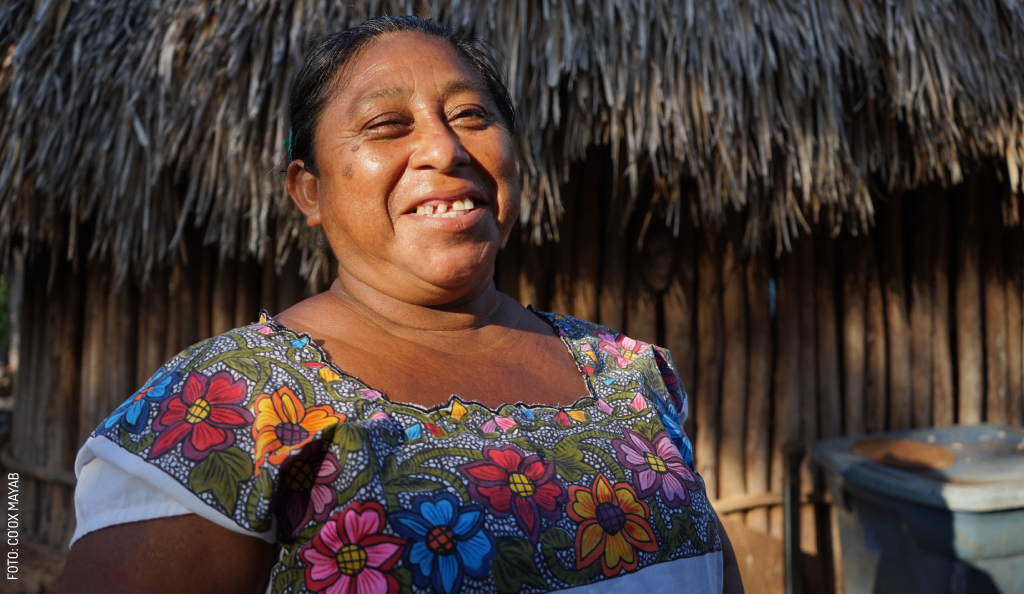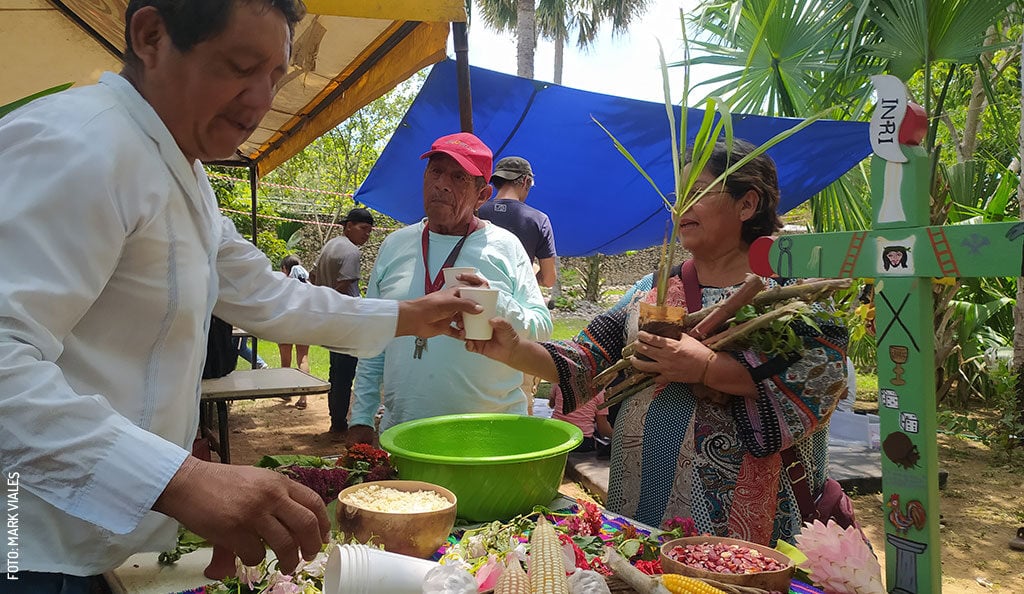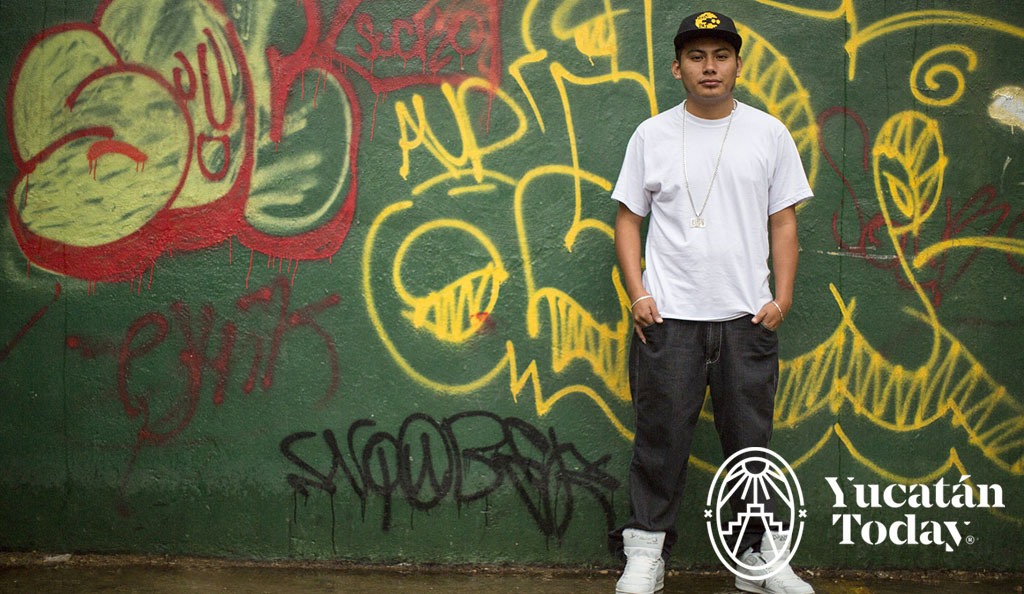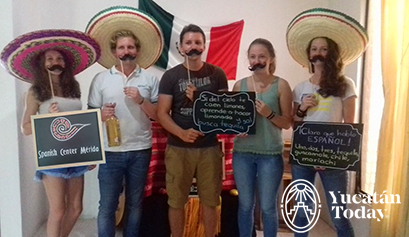
Learning the Maya Language: A Journey of Identity and Life
Bix a beel.
(How are you?)
If those words caught your attention, let me tell you that you've just opened the door to a whole universe: the Maya language. With the help of professor Ismael May May, a native Maya speaker who has been teaching Maya for over 25 years, we're sharing some of the most common questions people have. We hope these tips and fun facts will help you understand (and maybe even encourage you to learn!) this language full of history, identity, and life.
Is Maya a language or a dialect?
Maya is a complete language with its own grammar, structures, and unique sounds. While some might call it a "tongue," that term is less common in everyday English. What you should never call it is a “dialect.” Doing so is not only linguistically incorrect, but it also minimizes Maya’s historical and cultural value.
What is a dialect?
A dialect is a variation of an existing language, usually tied to a specific geographic area or social group. A language, on the other hand, is defined by its autonomy, a written tradition, and widespread recognition. For example, the English spoken in the United States, England, and Australia are all dialects of the same language.
What to know before you start learning
- Maya is not like Spanish or English. Maya has its own rules, sounds, and structures. It's a different linguistic world, and that's part of its magic!
- Some words have no direct translation. There are concepts that don’t exist in English, so sometimes you have to “borrow” words from other languages. This doesn’t make Maya less complete; on the contrary, it shows its cultural richness.
- Being bilingual helps, but it isn’t everything. While having experience with more than one language can make your journey easier, the most important thing is to have an open mind. Learning Maya isn't just about adding a new language; it's about connecting with a completely different worldview.
How long will it take to learn?
As with anything, everyone learns at their own pace. Your progress will depend on your consistency and commitment to regular practice. But as they say… trust the process!
Tips for getting started with learning Maya
- Connect with the Maya-speaking community. There's no better way to learn than by spending time with native speakers. If you're in Yucatán, feel free to visit communities in the interior of the state or even within Mérida. You might have a Maya speaker closer than you think.
- Don't be afraid to ask, but ask correctly. Remember that literal translations can be tricky. For example, it's better to ask, “How do you say hello in Maya?” instead of, “How do you say good morning in Maya?” This way, you’ll learn to communicate more naturally.
- Practice can be the hardest part. Unfortunately, there aren't as many resources for practicing Maya as there are for other languages, but they do exist. Try to look for official books. Without a doubt, the best and most effective advice is to spend time in a Maya-speaking community.
For professor Ismael, the most rewarding thing is seeing his students communicate in Maya, his mother tongue, and knowing that he's helping to preserve a vital part of our history.
He puts it clearly: “Even though more people want to learn Maya today—and not just Yucatecos—it still has a long way to go before it’s as valued as English, French, or other foreign languages.” And he’s right. Learning Maya isn't just useful; it's an act of identity, respect, and cultural resilience.
We invite you to break down barriers, learn, ask questions, make mistakes, and keep exploring this wonderful language. Every word learned, shared, and preserved is a seed that keeps an ancient culture alive.
Where can I learn Maya?
CEPHCIS
In-person and online
Calle 61 #470 x 52 y 54, Centro
cephcis.unam.mx
999 923 4486
FB: Cephcis Unam
CIL UADY
In-person and online
Calle 41 S/N x 20 y 30, Col. Industrial
cil.dgda.uady.mx
999 901 7614
FB: Centro Institucional de Lenguas
CECIDHY
Free online classes
Izamal, Yucatán
cecidhy.yucatan@gmail.com
FB: Cecidhy
INDEMAYA
Free in-person classes
Calle 66 #532 x 63 y 65, Centro
indemaya.yucatan.gob.mx
indemaya1218@gmail.com
FB: Instituto Para el Desarrollo de la Cultura Maya
Mtro. Ismael May May
Photography by Co'ox Mayab
First published in Yucatán Today print and digital magazine no. 454, in October 2025.

Author: Sharon Cetina
Marketer by trade, entrepreneur at heart, and a total extrovert. I'm on a mission to share the amazing beauty of Yucatán with the world through my work.
In love with Yucatán? Get the best of Yucatán Today in your email.
Don't miss our best articles and the monthly digital edition before anyone else.
Related articles

The Enduring Legacy of Maya Shamans
Don Idelfonso, a Mayan shaman from Chacsinkín, has dedicated his life to learning the language of the jungle, a language that is not spoken, but felt.
Maya Language in Urban Music
**Xíimbal Kaaj: Mayan Rap by Pat Boy and Yazmín Novelo.** An anthem to travel Yucatán, showcasing the vibrant Mayan culture and language. Listen to...




